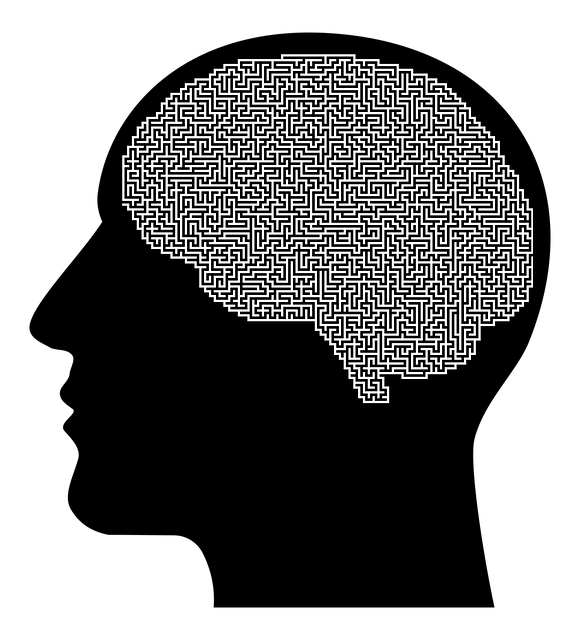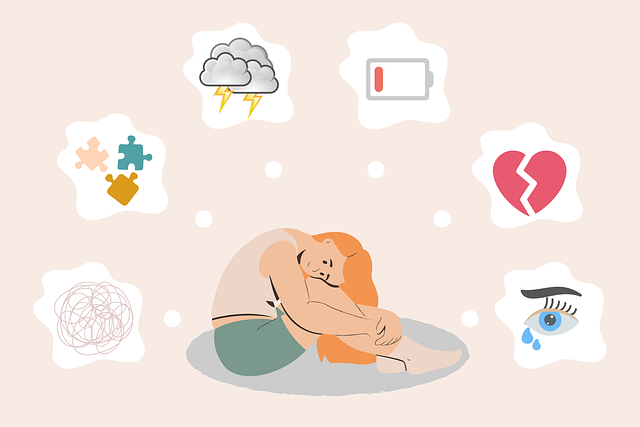TL;DR:
Stress management is crucial for young adults with neuro disorders, such as ASD or ADHD, as these conditions make them more susceptible to anxiety and depression. Tailored therapy, particularly Cognitive Behavioral Therapy (CBT), teaches coping strategies, builds resilience, and enhances emotional intelligence. Community support programs enrich CBT by fostering peer connections, sharing experiences, and promoting mindfulness practices, creating a holistic approach to stress reduction and mental wellness for this vulnerable population. Therapy for young adults with neuro disorders combines techniques like EQ training and mindfulness meditation to empower individuals in navigating stress triggers effectively.
Stress management is a vital aspect of fostering well-being, especially for young adults with neurodisorders. This comprehensive article delves into the intricate relationship between stress and its profound impact on this demographic. We explore effective strategies, including tailored therapy approaches, designed to mitigate stress levels. By understanding the unique challenges faced by young adults with neurodiversity, we can empower them with long-term tools for stress management, enhancing their overall mental health and quality of life. Discover practical techniques that offer hope and support in navigating stress through targeted therapy interventions.
- Understanding Stress and Its Impact on Young Adults with Neuro Disorders
- The Role of Therapy in Managing Stress for This Demographic
- Effective Stress Management Techniques Tailored to Neurodiversity
- Empowering Young Adults: Tools for Long-Term Stress Mitigation and Well-being
Understanding Stress and Its Impact on Young Adults with Neuro Disorders

Stress is a significant challenge faced by many young adults, especially those living with neuro disorders. These disorders can make individuals more susceptible to stress-related issues due to unique cognitive and emotional differences. For instance, conditions like Autism Spectrum Disorder (ASD) or Attention-Deficit/Hyperactivity Disorder (ADHD) often come with sensory sensitivities, social communication difficulties, and impulsivity, which can heighten stress responses. Unmanaged stress in young adults with neuro disorders may lead to increased anxiety, depression, and even exacerbation of symptoms related to their specific conditions.
Understanding the impact of stress on this demographic is crucial for developing effective therapy models. The right approach should focus on building resilience, teaching coping strategies, and promoting mental wellness. One such therapy gaining traction is Cognitive Behavioral Therapy (CBT), which helps individuals identify and change negative thought patterns contributing to stress. Additionally, confidence-boosting exercises, like setting achievable goals and practicing self-care, can empower young adults with neuro disorders to better navigate stressful situations. Mental Wellness Journaling Exercises and Communication Strategies are also valuable tools that encourage self-reflection, emotional awareness, and improved interactions with others, thereby fostering a healthier and more supportive environment.
The Role of Therapy in Managing Stress for This Demographic

For young adults navigating neuro disorders, therapy plays a pivotal role in their stress management journey. Specialized therapeutic approaches designed for this demographic help them understand and cope with the unique challenges they face. Cognitive-Behavioral Therapy (CBT), for instance, equips individuals with tools to challenge negative thought patterns and develop healthier coping mechanisms. By fostering emotional intelligence, CBT strengthens their ability to recognize and manage stress triggers effectively.
Community outreach programs implementing mental health awareness initiatives further complement therapy. These programs create safe spaces where young adults can share experiences, learn from peers, and build supportive networks. Such social connections are crucial for managing stress, as they provide a sense of belonging and reduce feelings of isolation. Moreover, these programs often incorporate mindfulness practices and stress reduction techniques, enhancing the holistic benefits of therapy for this vulnerable group.
Effective Stress Management Techniques Tailored to Neurodiversity

In today’s fast-paced world, stress management is a vital skill, especially for young adults navigating neurodiversity. Therapy for young adults with neuro disorders often includes tailored techniques to address unique challenges. For instance, Emotional Intelligence (EQ) training helps individuals recognize and manage their emotions effectively, fostering better self-awareness and coping mechanisms. By developing EQ, young adults can improve their ability to handle stressful situations, which is crucial for their overall well-being.
Additionally, Mindfulness Meditation has emerged as a powerful tool in stress management. It encourages individuals to focus on the present moment, calming the mind and reducing anxiety. This practice is particularly beneficial for those with neurodiversity, as it provides a means to regulate emotional responses and enhance mental clarity. Integrating mindfulness into daily routines can significantly contribute to long-term stress reduction and improved resilience.
Empowering Young Adults: Tools for Long-Term Stress Mitigation and Well-being

Young adults often face unique challenges that can significantly impact their stress levels and overall well-being. Empowering them with effective stress management techniques is crucial for fostering resilience and promoting long-term mental health. By teaching self-awareness exercises, mindfulness meditation, and other evidence-based practices, individuals in this age group can develop healthier coping mechanisms.
Incorporating therapy for young adults with neuro disorders into the curriculum allows for a comprehensive approach to stress mitigation. Self-Awareness Exercises, such as journaling and cognitive reframing, help individuals identify triggers and understand their emotional responses. Mental wellness podcast series production can also engage young adults in exploring topics related to mental health and provide accessible resources for continued learning. Mindfulness Meditation has been shown to reduce stress hormones and improve overall mood, making it a valuable tool for maintaining balance amidst the demands of adulthood.
Stress management techniques tailored to the unique needs of young adults with neuro disorders are invaluable tools for fostering long-term well-being. By combining understanding, therapy, and effective strategies that embrace neurodiversity, we can empower this demographic to navigate life’s challenges with resilience. Integrating these practices into their daily routines enables them to mitigate stress, improve coping mechanisms, and ultimately thrive in a world that often feels overwhelming. Access to specialized therapy for young adults with neuro disorders is crucial in equipping them with the skills necessary for a fulfilling and satisfying life.













